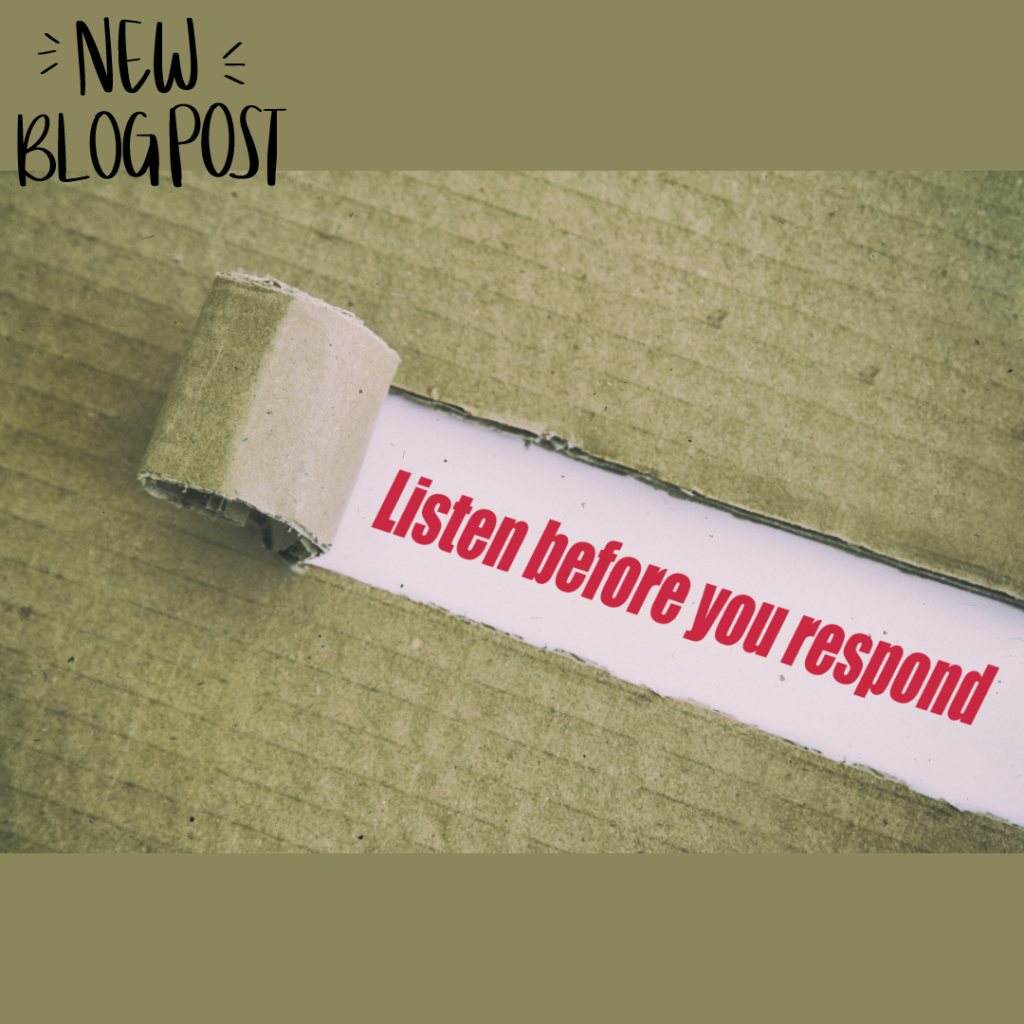
Do you react or respond? It might seem like splitting hairs, but there is a significant difference between reacting and responding. To put it simply, a reaction tends to be spontaneous and driven by emotion, while a response is more thoughtful and logical. Let’s break this down even further and consider these 9 key differences:
- A reaction lacks thought. Reactions are instinctive and lack much thought or analysis. Your brain is capable of making good decisions, if it actually has some time to thoughtfully consider the situation at hand. One of the greatest advantages that humans have is the ability to think, so we need to use it to our advantage. Reactions are a response designed to increase comfort in the short term by soothing discomfort without involving the intellect. This is usually is not the optimal response, though.
- A reaction is quick. Reactions are often quick, bordering on instantaneous. Quick decisions are usually are not as effective as those that were made patiently and carefully. As a general rule, the less time you spend on something, the less optimal the outcome will be.
- A reaction is aggressive. Reactions are often counterstrikes to an uncomfortable situation, and the intention of many reactions is to get back at someone. For example, you might make a harsh comment to someone that hurt your feelings.
- A reaction is also defensive. You might have an argument with your employer and suddenly decide to quit your job. A reaction like this is an attempt to relieve anxiety and end conflict quickly, but defensive reactions may end up being a costly mistake.
- A reaction often creates additional difficulties. Reactions often create additional challenges. When the long term is sacrificed for the short term, more challenges may occur. For example, hastily quitting your job could result in financial issues. Yelling at your partner can damage your relationship.
- A response is intelligent and thoughtful. For example, you recognize that you don’t like your job, so you start looking for a new one. Or, you and your partner start to argue, and you choose to take a break to calm down, so you can have a more loving, productive conversation. A response allows you to consider what could be the ideal outcome from the course of action you take in the situation.
- A response takes as much time as necessary. A response isn’t rushed. You consciously decide to take the time to make a smart decision. Why rush if you don’t have to? The more thought you give the situation, the more likely you are to respond effectively.
- A response lacks aggressiveness. A response targets the best outcome. It doesn’t focus on retribution or use anger as a weapon. It’s calm, cool, collected, and intelligent, while aggressiveness often lacks logic and intelligence.
- A response is constructive and seeks a solution. Responses are solution-oriented and seek to improve the situation. Reactions don’t have the same purpose. The situation should be better after a good response, while it is likely to be worse after a reaction.
So, let’s go back to the question I asked at the beginning of our discussion. Do you react, or do you respond? Can you see how responding is the better option in most situations? Responding uses the best parts of you to make a decision. Reacting relies on your lower faculties. So, whenever possible, avoid reacting and respond instead.
If you want to learn more about reacting vs. responding and how to cultivate a more responsive approach, listen to Episode 72 Respond vs. React on the Elev8 Your Life with Kristi podcast that comes out this Tuesday, April 23.
#reactingvsresponding #reactvsrespond #react #respond #communication #lifecoaching #lifecoach #elev8lifecoaching #elev8yourlifewithkristi